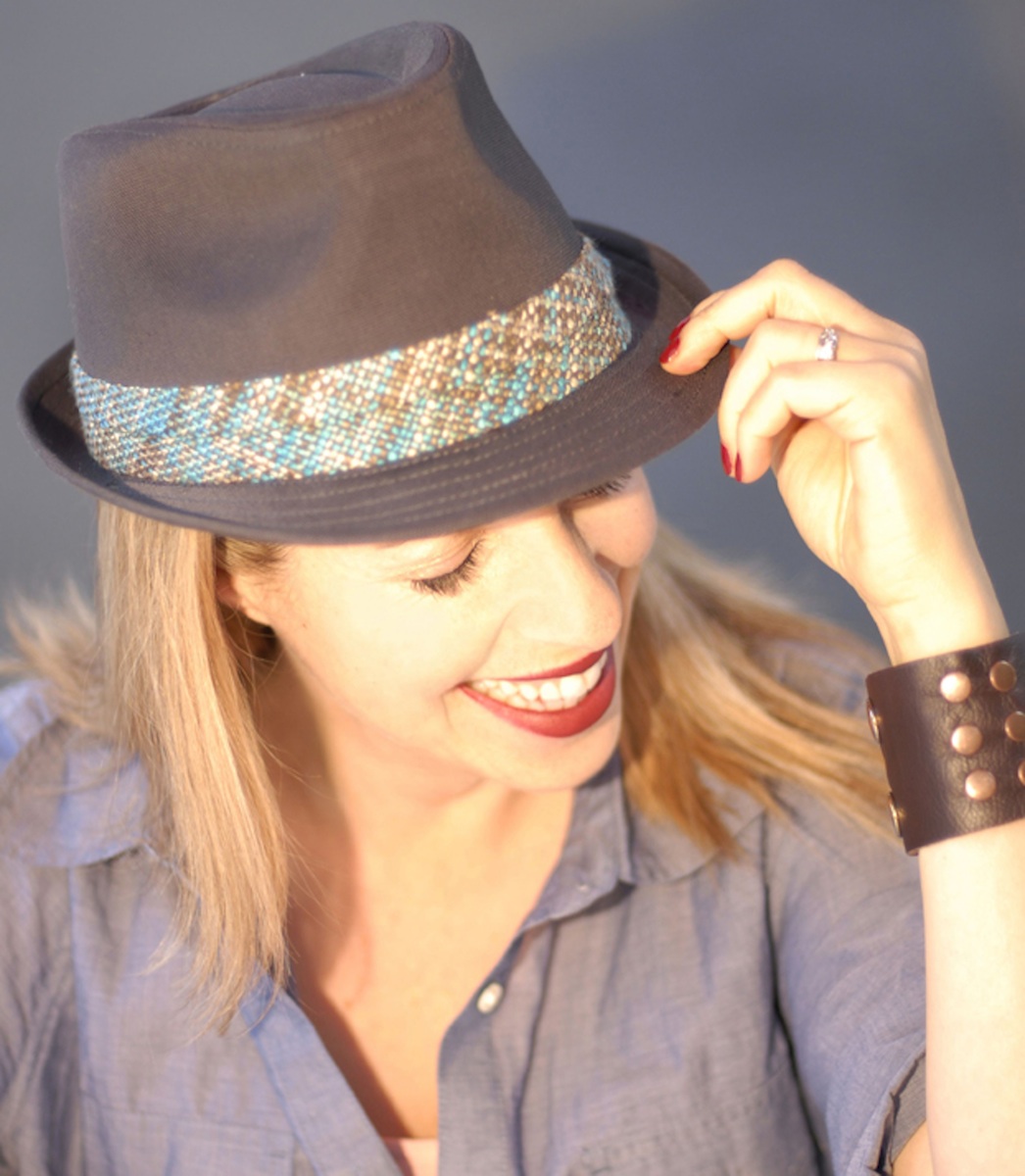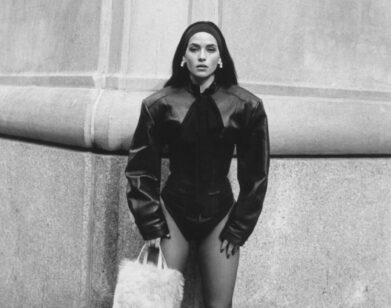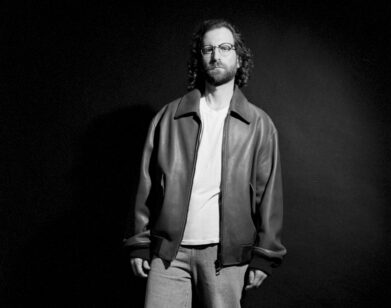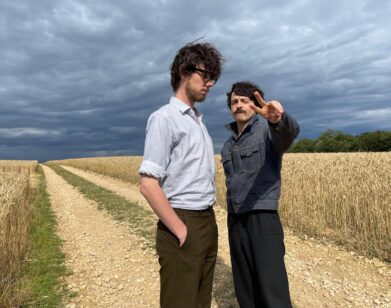Tiffany Shlain, the Talk of the Town

TIFFANY SHLAIN
Once dubbed by Newsweek one of the “Women Shaping the 21st Century,” filmmaker Tiffany Shlain returns to shake things up on screens across the country and around the world. Tonight, at New York’s Angelika Theatre, marks the premiere of her latest documentary, Connected: An Autoblogography about Love, Death & Technology, which explores the overlapping concepts of, well, just what the title implies, among other thought-provoking topics. Shlain, also founder of The Webby Awards, set out to spark conversation; thus far, it seems, she’s succeeded. At pre-release presentations nationwide, this savvy mother of two has guided an in-depth and ongoing dialogue with audiences, inviting everyone to join in.
In advance of its official debut, which in Manhattan features special speakers, Shlain squeezed in time for an impromptu interview. Between a coffee shop, a cab, and De Niro’s Tribeca Grill, Shlain spoke about being back in New York, what viewers can expect from the flick, and how this may well be the last time she ever appears in front of the camera.
NELL ALK: How does it feel to be in New York promoting Connected?
TIFFANY SHLAIN: We’re really excited. We opened at Sundance [in] January. We’ve shown in so many different cities. Every city has been different: the way they talk about it, what things they want to talk about. I feel good about it. I’m proud of it. I love the response it elicits from people. The best part is [this] active dialogue happening on the Facebook page, which is really cool.
ALK: What’s happening here this weekend and next week?
SHLAIN: We have speakers lined up all week at The Angelika. [Tonight], which is the premiere, I’ll be in discussion with Anna Deavere Smith and Todd Oldham talking about connectedness. We have speakers talking about filmmaking in terms of new technologies; a media professor from Fordham, Paul Levinson, talk[ing] about how media is changing the way we live; one woman talking about women and technology. We are really interested in expanding the conversation in all these different ways.
ALK: What prompted you to make this film, which asks more questions than it answers?
SHLAIN: I was always interested in technology, even before I founded The Webby Awards. I made films and I studied film theory and how different media changes culture and the way we connect. Originally, I was just interested in the history of connectedness in humanity, where we are today and where I think we might be going. Then, in the middle of making the film, I was watching a rough cut and realized I wasn’t feeling emotionally engaged. Here I am, making a film about connectedness, and I wasn’t feeling connected.
ALK: Then what?
SHLAIN: My father had just been diagnosed with brain cancer. I was thinking a lot about connection and losing connection. I realized that, to understand humanity’s connectedness, I needed to understand my own sense of connectedness. The film really waves back and forth from my own personal story [of my father and his illness] to the larger story of humanity.
ALK: What was it like for you, revealing such a personal family matter?
SHLAIN: I have found that sharing this very intimate part of my life has been really powerful, because it has brought support from people I wasn’t expecting. [It’s] cathartic on many different levels. As I get older, I realize it’s so much better to connect with people. It makes everything better to connect. Only connect. Why not have my art be about that? I think of it as moving from the third person to the first.
ALK: What was it like to put yourself inside your own documentary?
SHLAIN: It was scary at first. I didn’t have a lot of guideposts on what that should or would look like. It surprises me because there’s so many memoir books. There’s a whole genre. I can count on one hand films that involve someone’s own personal story. It surprises me because we’re living in such an autobiographical age, where every Facebook post and tweet is people trying to express who they are.
ALK: What message do you want to send?
SHLAIN: I definitely want the film to convey my wrestling with the good and the bad. Sometimes people say it’s so optimistic, like the Internet’s going to save everything. It was a mixture of what I am hopeful about, what I’m concerned about… We’re trying to trigger a conversation with this film. We’re changing the way we do absolutely everything in our lives. Everyone’s moving so quickly. I think it’s time to talk about what connectedness is doing to us and where we could direct it.
ALK: What would you like viewers to take away from the film? Especially given that it’s a conversation starter, rather than a concrete solution.
SHLAIN: I would love for them to explore connectedness in their own lives and the work they do. To take time and explore what it means. Is there [something] they can do [to] channel more of their connectedness to collaborate and solve [problems]? You need to imagine your gift, the thing you can bring to this world. There’s so many creative ways to plug in, connect, engage and contribute. You can be really creative about it. In previous generations, it was so much more cookie-cutter. I don’t think that’s the case anymore. My career has been so not normal. The film explores interdependence and how to live interdependently.
ALK: Whom within this field of theory we should be paying attention to right now?
SHLAIN: There’s a group called The Interdependence Movement. They’re looking a lot at different models of interdependency. Looking at the world as connected and interdependent is a very different way of looking at the world.
ALK: Your film addresses several varied aspects of connectedness, but only briefly brushes the surface of our relationship to and with animals. As a vegan and animal rights advocate, I’m interested in hearing what else you have to say as it pertains to this subject.
SHLAIN: I tried to show in a graphic [animation] we use in the movie, the species tree, that we are part of this ecosystem, this larger tree that we’re all connected to. Through a lot of scientific and left-hemisphere thinking in the last 400 years, we’ve separated ourselves from nature, as if we were superior. We were looking at nature as a resource that we could manipulate. I think we’re coming to a new understanding that it’s just impossible. We are nature. We can’t remove ourselves. We need to think more interdependently.
ALK: Absolutely. So, what’s this whole screening circuit whirlwind been like?
SHLAIN: I’ve worked my whole life for this moment. It’s a culmination of so much of my work. I want to appreciate it. I’ll look back at this period with great love and excitement about it. I’m just trying to be present. Trying to be in the moment with everything.
ALK: For sure. What else have you got going on?
SHLAIN: We’re making a new film series called Let It Ripple: Mobile Films for Global Change. And, we premiered a 4-minute film about a month ago that was completely crowdsourced, called A Declaration of Interdependence. It’s part of a whole new series [of] short films about curiosity, beauty, happiness, and the brain.
ALK: Your education and career have taken you coast to coast. You’re based in San Francisco but have to have a place in your heart for good ol’ New York, right?
SHLAIN: In California it’s a lot about valuing lifestyle, living well, and balance. I think New York is much more focused on what you’re doing. You have to try harder to make sure you have [balance] in your life. I love New York. It’s so exciting. There’s so many interesting people here. I just feel like anything can happen. You can make so much happen quickly here. I love it.
ALK: Any advice for young people with dreams of making movies, or any other endeavor?
SHLAIN: It’s about moxie. I believe if you work really hard and follow what you want to do in life that that combination—I believe in it. You need to take risks.
ALK: Did you always know this was what you wanted to do?
SHLAIN: Yes. Oh yeah.
CONNECTED PREMIERES TONIGHT THE ANGELIKA THEATRE. FOR MORE ON THE MOVIE, VISIT THE FILM’S FACEBOOK PAGE.






